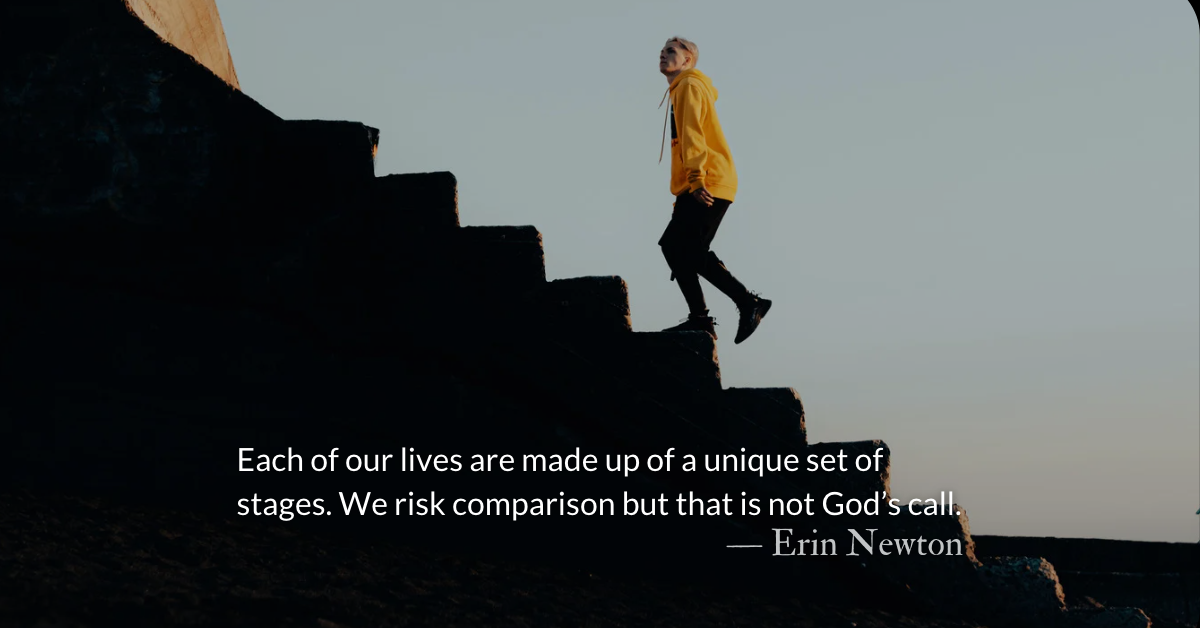Links for today’s readings:
Read: Numbers 6 Listen: (4:04) Read: James 1 Listen: (3:26)
Scripture Focus: Numbers 6.1-4
1 The Lord said to Moses, 2 “Speak to the Israelites and say to them: ‘If a man or woman wants to make a special vow, a vow of dedication to the Lord as a Nazirite, 3 they must abstain from wine and other fermented drink and must not drink vinegar made from wine or other fermented drink. They must not drink grape juice or eat grapes or raisins. 4 As long as they remain under their Nazirite vow, they must not eat anything that comes from the grapevine, not even the seeds or skins.
Reflection: Called to More
By John Tillman
Anyone, male or female, could take Nazarite vows.
Nazarites under vows were limited in many ways, usually for a short period. Their hair went uncut. They abstained from grape-related products, whether seed, oil, vinegar, or wine. They followed purity laws, such as not being near dead bodies, more strictly than others. Becoming ceremonially unclean in any way, would mean shaving their head and restarting the period of their vow. The limitations on the Nazarites made the vow costly and difficult. Perhaps this was to dissuade rash vows. Making a vow to God is serious.
The Bible’s most famous Nazarite is also the worst. From birth, Samson was called to be a Nazarite for life. God used Samson despite constant violations of his vows. He kept the most obvious one of not cutting his hair. But he drank, touched dead bodies (including the bodies of animals and people he killed), and was sexually promiscuous and impure. Only when his head was shaved, did God leave him to be captured and humiliated.
Jesus was a Nazarene but not a Nazarite. Nazarenes were from Nazareth. Nazarites made a vow to God. The village and the vow have nothing in common, other than their similar sound.
Jesus’ cousin, John the Baptizer was probably a Nazarite from birth, like Samson. (Luke 1.11-17) Luke does not explicitly mention the Nazarite vow, but John’s and Samson’s stories are similar. They are both miracle children promised to barren couples. Both are to abstain from the fruit of the vine. Both are tasked to begin something new—Samson began throwing off the yoke of the Philistines and John called people to throw off the yoke of sin, returning to the Lord in repentance. Both ended their lives as captives to the oppressive government they lived under.
Paul also fulfilled and paid the cost of vows that were probably Nazarite vows. (Acts 18.18; 21.22-24)
Christians are set apart not by Nazarite vows but by following Jesus the Nazarene. Jesus paid our vow’s cost and completed its work. All that is left for us to do is follow him. Yet, as we follow, we may be called to more.
Beware rash vows, but consider: Is the Holy Spirit stirring you to something “more?” Is there a “vow” you are called to? When we have been given much, more is expected. When we are faithful in a little, more will be given.
Divine Hours Prayer: A Reading
Jesus said: “In all truth I tell you, whoever welcomes the one I send, welcomes me, and whoever welcomes me, welcomes the one who sent me.” — John 13.20
– Divine Hours prayers from The Divine Hours: Prayers for Springtime by Phyllis Tickle.
Read more: A Rebellion of Repentance
Rebellion out of hate only destroys. John’s rebellion of repentance is motivated by love that longs to restore what is right.
Read more: Praying Priestly Blessings
As followers of God today, a part of our identity is as carriers of the blessings of God that are intended for the world.






